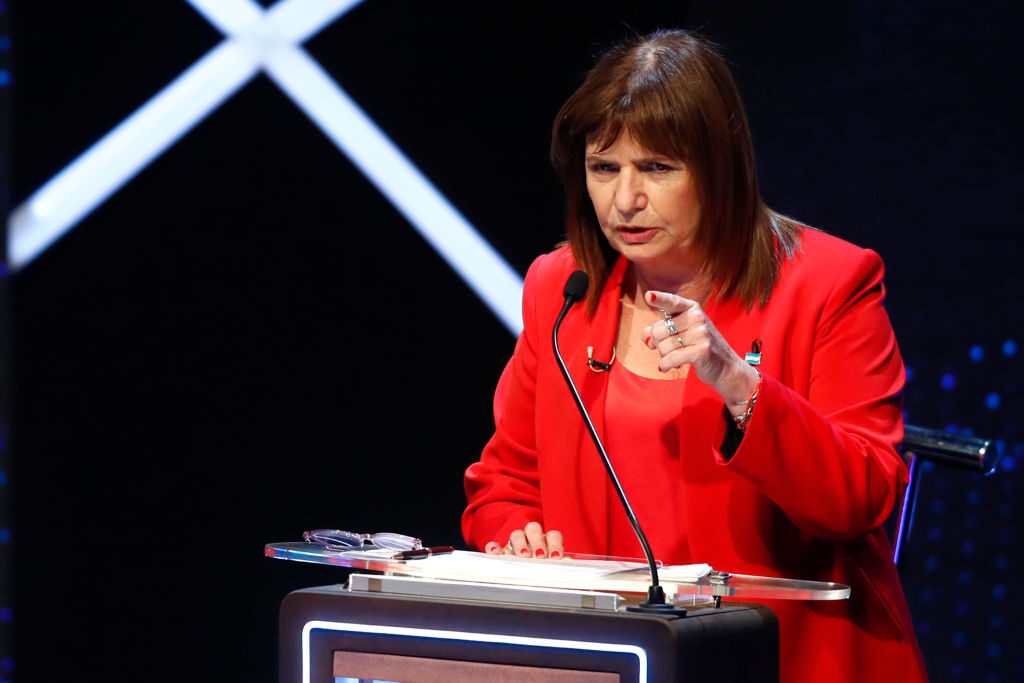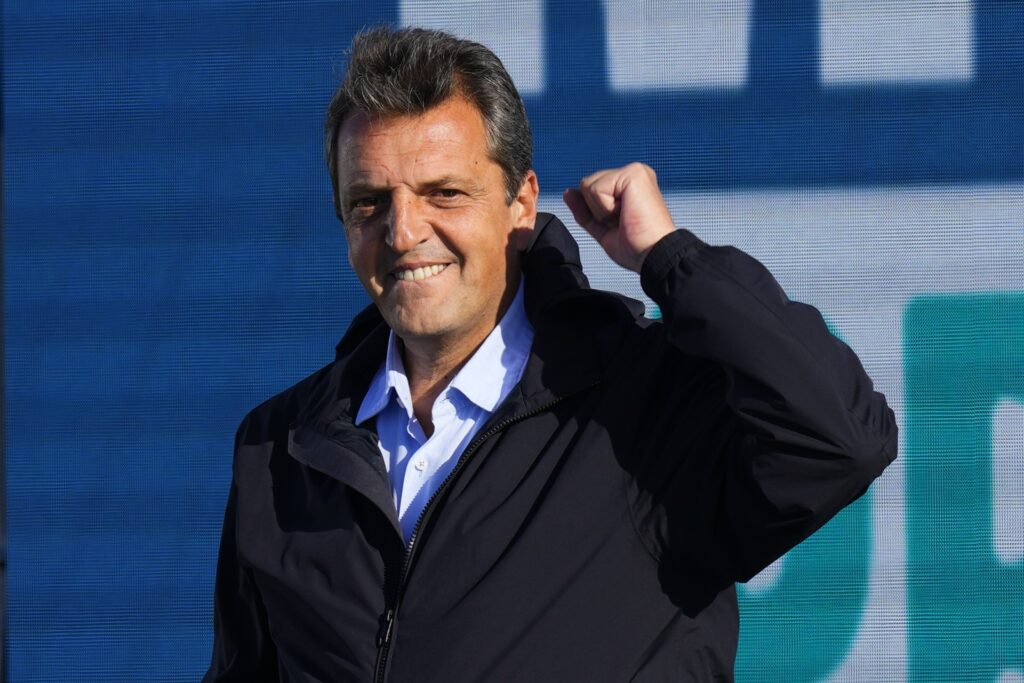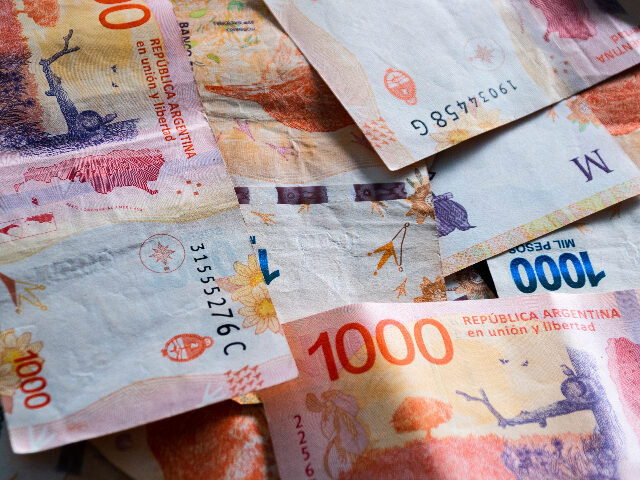Argentina’s rampant inflation reached 138.3 percent over the past 12 months as of September, creating a precarious economic situation that has made the nation one of the most inflation-plagued countries in the world as voters prepare to choose a new president on Sunday.
Argentina currently maintains the third-highest inflation rate in the world. The state of the nation’s economy, the crumbling Argentine peso, and out-of-control inflation rates not seen in the country in more than three decades are at the forefront of the issues defining the presidential election. Voters will choose a new president, as outgoing leftist president Alberto Fernández chose not to run for reelection.
According to Argentina’s National Statistics and Census Institute (INDEC), the nation experienced a dramatic back-to-back surge in inflation during the past two months — a 12.7-percent increase during September and a 12.4-percent increase in August.
#DatoINDEC
Los precios al consumidor (#IPC) aumentaron 12,7% en septiembre de 2023 respecto de agosto y 138,3% interanual. Acumularon un alza de 103,2% en los primeros nueve meses del año https://t.co/GTVFgmYq1J pic.twitter.com/xof6yqYE3W— INDEC Argentina (@INDECArgentina) October 12, 2023
While Argentina’s annual inflation rate falls short of neighboring Venezuela’s 317.6 percent annual inflation rate — or 396 percent according to private sources, as the socialist Maduro regime often tends to publish skewed data — Argentina’s inflation in September surpassed Venezuela’s six percent rate during that month.
Argentina currently ranks as the country with the third highest inflation, trailing behind by Venezuela and Lebanon.
On October 10, Argentina’s Central Bank raised the country’s interest rates from 118 to 133 percent in a struggling effort to keep up with inflation. Central Bank analysts have forecast that Argentina will end 2023 with more than 180 percent inflation.
“It is no longer useful to raise the rate; expectations have gone away, and raising it at this time is not going to contain the flight from pesos to dollars,” an Argentine private banking manager told Reuters on condition of anonymity.
As inflation continues to diminish both Argentine citizens’ purchasing power and the value of the crumbling Argentine peso, citizens have sought to preserve their savings by exchanging pesos for U.S. dollars or other foreign currencies.
Argentina has had a long history, spanning 92 years, of on-and-off foreign currency control measures that harken back to 1931. These measures have severely restricted Argentine citizens from freely trading in foreign currency.
The last time Argentina had no restrictions of that nature was during the tenure of former center-right President Mauricio Macri, who lifted the restrictions after he took office in 2015. However, Macri reinstated the currency control measures towards the end of his term in 2019 as Argentina faced a significant loss of foreign reserves.
The outgoing leftist government of Alberto Fernández, rather than remedy the situation, further tightened foreign currency control measures during its four years in office, accelerating the collapse of the economy.
Since Fernández took office, Argentina has been subject to an extremely convoluted multi-tier currency control system that features a revolving door of exchange rates, some more specific than others.
As of October, Fernández’s government maintains more than 15 different exchange rates. Among them is the official reference rate that companies buy or sell to the bank for imports and to settle exports; a rate with hefty tax surcharges for online purchases and subscription services such as Netflix and Spotify; and the “Coldplay” dollar, an exchange rate named after the British rock band used in transactions involving live shows in Argentina.
The severe limitations inherent to each of the different exchange rates have also led to a surge in the black market rate known as “Dollar Blue.” This much higher exchange rate operates outside of the government’s currency system. Citizens usually carry out “Blue” transactions through clandestine locations colloquially referred to as cuevas (“caves”).
On October 9, the exchange rate value of Dollar Blue breached the 1,000-peso-per-dollar threshold. Since then, it shortly bounced back and was hovering at 955 pesos per dollar as of Wednesday morning.
The three leading candidates in Sunday’s upcoming election have all promised different ways to tackle Argentina’s inflation as part of their economic campaign promises.
Libertarian economist and presidential race frontrunner Javier Milei has promised to eliminate the Argentine Central Bank and the Argentine peso altogether through a process commonly known as “dollarization,” which consists of replacing a nation’s currency with the U.S. dollar. Countries with similar cases of rampant inflation, such as Ecuador, El Salvador, and Panama, have adopted dollarization with great success.

Presidential candidate of the Liberty Advances coalition Javier Milei attends a presidential candidate debate ahead of the October general election in Santiago del Estero, Argentina, on October 1, 2023. (AP Photo/Tomas F. Cuesta, Pool via AP)
Center-right establishment candidate Patricia Bullrich has promised to “erase” inflation through the implementation of a “dual currency” system in Argentina, allowing both the peso and the dollar to freely circulate in the country. Bullrich also seeks to allow the Argentine Central Bank to operate with complete autonomy.

Presidential candidate for Juntos Por El Cambio Patricia Bullrich speaks during the final debate ahead of the presidential elections at Facultad de Derecho of Universidad de Buenos Aires on October 8, 2023, in Buenos Aires, Argentina. (Agustin Marcarian – Pool/Getty Images)
Argentina’s current economy minister and the establishment leftist candidate Sergio Massa has promised to fix the nation’s precarious economy through fiscal balance, trade surplus, the implementation of a competitive exchange rate that does away with the current closed and convoluted system, and through “inclusive development.”

Sergio Massa, Argentine Economy Minister and ruling party presidential candidate, pumps his fist during a campaign event in Buenos Aires, Argentina, on October 17, 2023. (AP Photo/Natacha Pisarenko)
Outgoing President Fernández’s vocally pro-China government sought to steer Argentina away from the U.S. dollar and replace it with the Chinese yuan. In April, Argentina announced it would start using the yuan to pay for Chinese imports in favor of the U.S. dollar, echoing a measure also adopted by the fellow leftist Brazilian government of Luiz Inácio Lula da Silva.
Argentina has also begun to use the yuan to pay its over $40 billion debt to the International Monetary Fund (IMF) after the organization announced in July that it was fine to do so.
Fernández has also relied on China to attempt to restore Argentina’s dwindling foreign reserves through a $5 billion currency swap deal signed in Beijing in November. The original swap deal was expanded to $6.5 billion on Wednesday after Fernández met with Chinese dictator Xi Jinping on the occasion of China’s third Belt and Road Forum for International Cooperation.
| El presidente Alberto Fernández (@alferdez) mantuvo un encuentro con su par de la República Popular China, Xi Jinping, en Beijing, China. pic.twitter.com/IlxpY9xCqa
— Casa Rosada (@CasaRosada) October 18, 2023
Fernández, who made Argentina join China’s predatory Belt and Road Initiative (BRI) debt trap program in February 2022, spared no moment to thank and praise China and Xi for the expanded currency swap deal, stating that “good friends show up in bad times” and adding that the Chinese money will allow Argentina to “end the year with peace of mind.”
“These are the things that Argentines have to know how to value because, otherwise, we all end up confused,” Fernández said. “There is a madman who says that he will not agree or negotiate with such and such countries when those countries help Argentina a lot. And Argentina must value where its friends that help it are.”
Fernández’s words were a clear allusion to presidential frontrunner Milei, who had repeatedly stated that he would cut government ties to Beijing if elected, as he “doesn’t do business with communists.”
Christian K. Caruzo is a Venezuelan writer and documents life under socialism. You can follow him on Twitter here.

COMMENTS
Please let us know if you're having issues with commenting.